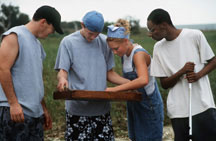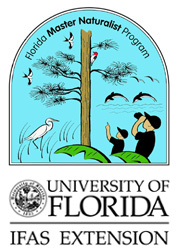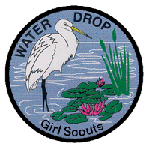

Welcome to our Education Corner! Here we hope to provide parents and teachers of students in grades Pre-K through 12 with all the materials they need to integrate wetlands learning in their students' curriculum. The following are links to sites (mostly government and non-profit based) that have lesson plans for wetlands activities, including group experiments and investigations, reference material, fact sheets and even suggested reading.
If you would like to add another site to this list please contact the webmaster and share the address.
For All Ages
 Project
Wet - interdisciplinary water education program for educators
Project
Wet - interdisciplinary water education program for educators
Broad-based water resource activities developed, field-tested,
and reviewed by over 600 educators and resource managers working with
34,000 students nationwide.
USGS: Fragile
Fringe - A Guide for teaching about Coastal Wetlands
Multi-unit curriculum on wetlands, including an age-appropriate
focus for elementary, upper-elementary and middle and high school students.
This site also includes a reading list of relevant books for grades pre-K
through 8.
Wetlands Classroom
Activities
Hands-on experiments for every age group. The following are examples: grades K-3: Water in the World, Build your own water cycle; grades
4-7: Non-point Source Pollution, Build your own aquifer, grades
8-12: Source Water Protection: Ground Water, Build Your Own Watershed.
The Water
Sourcebook Series
These PDF files contain 4 volumes appropriate for Grades K - 2, 3 - 5,
6 - 8, & 9 - 12. The Series explains how the water management cycle
affects every aspect of the environment. The curriculum provides strong
science and math content, but also links these subject areas to social
studies and language arts. Each Water Sourcebook contains hands-on
activities and investigations, fact sheets, reference materials, and
a glossary of terms.
Adopt-A-Watershed
Adopt-A-Watershed uses a local watershed as a living laboratory in which
students engage in hands-on activities, making science applicable and
relevant to their lives. It weaves education with the community developing
collaborative partnerships and reinforcing learning through community
service.
Wetlands
Reading List, Grades Pre-K- 12
Books can transport readers right into wetlands. This comprehensive
reading list include such favorites as The Lorax by Dr. Seuss, The
Wind in the Willows by Kenneth Grahame, Pilgrim at Tinker Creek by Annie
Dillard and Chesapeake by James A. Michener. Full identification information
is listed for each book, as well as a synopsis and comment about its contribution
to the list.
For Elementary Students
The Jason Project XVI: Disappearing Wetlands
JASON Expedition is a supplemental, inquiry-based, science learning adventure for upper elementary, middle and junior high. The mission of this year’s JASON Expedition is to better understand what wetlands are, why they are disappearing, and how
to best manage these ecosystems in Louisiana, in your neighborhood, and
around the world.The JASON Foundation for Education non-profit educational organization headquartered in Needham, Massachusetts.

Splash:
Water Resources Education
Activities, fact pages and wetland games including Wetland Thoughts, The
Wetland Connection, and Building a Wetland (an experiment to create
a wetland in a lasagna pan). All lesson plans detail the corresponding
Sunshine State Standards objectives.
For Middle School Students
The Jason Project XVI: Disappearing Wetlands
JASON Expedition is a supplemental, inquiry-based, science learning adventure for upper elementary, middle and junior high. The mission of this year’s JASON Expedition is to better understand what wetlands are, why they are disappearing, and how
to best manage these ecosystems in Louisiana, in your neighborhood, and
around the world.The JASON Foundation for Education non-profit educational organization headquartered in Needham, Massachusetts.
For High School Students
 Surf Your Watershed
Surf Your Watershed
Just enter your zip code to learn about the watershed in your neighborhood.
Each zip code includes information about "citizen-based groups at
work in this watershed" (brought to you by Adopt-A-Watershed) and
local "River Corridors and Wetlands Restoration Efforts" for
those interested in community involvement.
Environmental
Careers: Wetland Ecologist
Provides a thorough wetland ecologist job description including employment
and working conditions and required training. Also a database of other
environmental oriented jobs and links to internship and career-related
sites.
Special Programs
 The
Florida Master Naturalist Program
The
Florida Master Naturalist Program
FMNP is a state-wide adult education extension program for persons
interested in learning more about Florida’s environment, seeking
educational contact hours, or wishing to increase their knowledge for
use in education programs as volunteers, employees, and ecotourism guides.
The FMNP includes courses in 3 subject areas – Freshwater Wetlands,
Coastal Systems, and Upland Habitats. Students receive 40 educational
contact hours including classroom learning, field trips, and practical
experience in interpretation. Cost per course is $200. Students receive
detailed course manuals and, upon completion, UF certificates,
patches, and pins denoting their area of expertise (e.g., Wetlands Naturalist)
and are registered in the UF database of Florida Master Naturalists.
 Water
Drop Path Program for Girl Scouts
Water
Drop Path Program for Girl Scouts
A wetlands education program where Girl Scouts (Brownies, Juniors, Cadettes
and Seniors) can earn a patch while making a difference in their
community's wetlands.
Educating Young People About
Water
This searchable database will lead you to information on curriculum in
140 water-related topics, including, but far from limited to Wetland ecosystems.
Each piece of curriculum is explained in detail, but must be purchased
(at this site) from sources around the country.